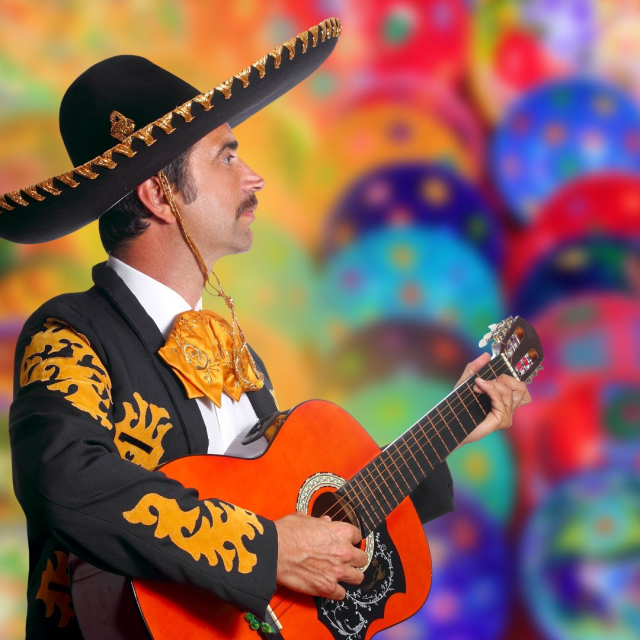Every year on January 21, Mexico celebrates Mariachi Day, a date dedicated to honoring one of the country's most iconic and recognized musical traditions. This musical genre not only represents an artistic expression, but also a fundamental part of Mexican cultural identity. In this article, we will explore the origin, evolution, impact, and celebrations related to this very special day.
Origin and meaning of mariachi
Mariachi has its roots in the western regions of Mexico, especially in the states of Jalisco, Nayarit, Colima and Michoacán. Its history dates back to the 19th century, when groups of local musicians began playing at social and religious events and popular festivals. Although the instruments and composition of mariachi have evolved over time, its essence has always been to represent the emotions, stories and traditions of the Mexican people.
The term "mariachi" has several theories about its origin. One of the most popular suggests that it comes from the French word "mariage" (marriage), since mariachis used to play at weddings. However, recent studies suggest that the word may have indigenous roots. Whatever its linguistic origin, the mariachi is today a universal symbol of Mexico.
International recognition
In 2011, UNESCO declared mariachi as Intangible Cultural Heritage of Humanity, recognizing its importance as a living tradition that fosters dialogue between communities and preserves Mexico's cultural heritage. This recognition helped strengthen mariachi's place on the global scene and promote its learning and dissemination throughout the world.
Instruments and composition
Mariachi music is characterized by its rich instrumental composition. Traditional groups include guitars, guitarrones, vihuelas, violins, and trumpets. The combination of these instruments creates a unique sound, full of energy and passion. In addition, the lyrics of the songs often address themes such as love, heartbreak, nature, religion, and national pride.
Typical clothing
The charro suit is an integral part of the mariachi's performance. This outfit, which includes jackets adorned with embroidery, pants with metal button details, and wide-brimmed hats, reflects Mexican elegance and tradition. Each detail of the suit has cultural significance and highlights pride in the mariachi's roots.
Mariachi Day Celebrations
Mariachi Day is celebrated with great enthusiasm throughout Mexico, especially in cities and regions where this musical genre has a strong presence. Below are some of the most notable activities that take place during this date:
Concerts and presentations
On this date, numerous squares, theaters and cultural centers organize concerts in honor of the mariachi. Plaza Garibaldi in Mexico City, known as the home of the mariachi, is one of the main points of celebration. Here, visitors can enjoy live performances and learn about the history of this tradition up close.
Festivals and parades
In cities like Guadalajara, Jalisco, the birthplace of mariachi, parades and festivals are held that include musical performances, displays of traditional costumes and cultural activities. These events attract both locals and tourists who wish to immerse themselves in the richness of Mexican culture.
Workshops and conferences
Various educational and cultural institutions take advantage of this date to organize workshops and conferences on the history and technique of mariachi. These activities seek to promote learning and the transmission of knowledge to new generations.
Recognitions and tributes
Mariachi Day is also an opportunity to recognize musicians and composers who have dedicated their lives to this tradition. Tributes are paid to prominent figures in the genre, as well as contests and awards to encourage emerging talent.
Cultural and social impact
Mariachi transcends music; it is a tool for connection and belonging. In Mexican migrant communities in the United States and other countries, mariachi groups are a bridge that connects people to their roots. In addition, this musical genre is a source of national identity and a representation of Mexico's values and traditions.
On the international stage, mariachi has influenced various musical styles and has been performed by artists from different countries. Its presence in films, television shows and international events has contributed to its global recognition.
Challenges and future of mariachi
Despite its popularity, mariachi faces challenges today. Globalization and the influence of other musical genres have led to a decline in the number of young people interested in learning this tradition. However, initiatives such as mariachi schools, educational programs, and international festivals are working to preserve and revitalize this cultural legacy.
Technology also plays a major role in promoting mariachi. Digital platforms allow this music to reach wider audiences and musicians to share their art with the world.
Mariachi Day is a celebration that not only highlights Mexico's musical richness, but also reinforces the importance of preserving and promoting cultural traditions. This musical genre, which has witnessed centuries of history and evolution, continues to be a symbol of pride and unity for Mexicans.
By honoring mariachi, Mexico also celebrates its diversity, passion, and festive spirit. Every January 21, the sound of trumpets, violins, and guitars resonates loudly, reminding us that mariachi is much more than music: it is a living legacy that connects the past, present, and future.
